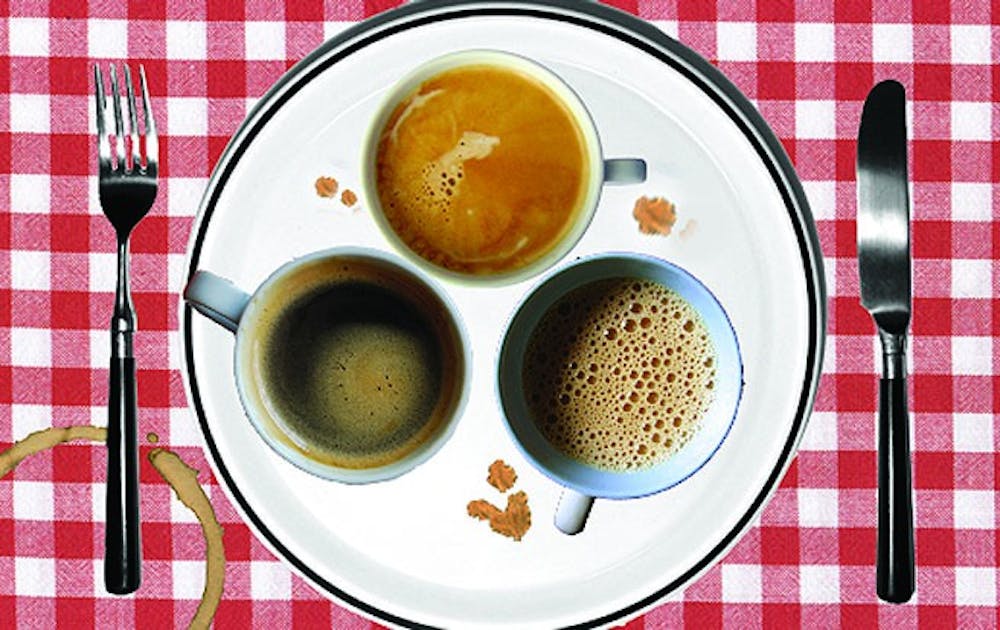In order to maintain their overall health, students should be aware of their caffeine intake.
The Food and Drug Administration recently launched an investigation to examine the potential side-effects of energy drinks on health. The FDA-led campaign came in response to the death of a 14-year-old Maryland resident Anais Fournier, who died after consuming two Monster Energy drinks within 24 hours. With finals fast approaching, many Duke students are resorting to caffeine as a study aid, but it is important to keep caffeine intake in control, said Corwen Baker, barista at Joe Van Gogh on campus.
“The concept of caffeine dependence is dangerous even if it is profitable for us,” Baker said. “Everything has its risks, and it’s up to the individual to make their own decisions. I don’t feel like I’m forcing coffee down people’s throats.”
Baker noted that in the weeks leading up to final exams, there is often a “huge spike” in sales, especially in coffee. Study-crazed students come in for a quick stop to refuel on their coffee and use it to “overtax their bodies.”
Following Fournier’s death caused by a heart attack from caffeine toxicity, her parents are now suing Monster Beverage Corp. for not giving sufficient information on its drinks’ caffeine levels. In total, five people have died in the past three years from drinking Monster Energy drinks.
If students are using caffeine excessively, there may be a need to provide more education on the effects of caffeine. There are significant differences between energy drinks and coffee, for instance, since energy drinks are made with a much higher concentration of caffeine, Baker said.
Cramming for a test while loaded on caffeine may not be as effective as getting enough sleep before an exam, said Franca Alphin, director of nutrition services at Student Health, in an email Monday.
“Sleep trumps everything. Sleep allows your body to rest and recover and retain information,” Alphin said. “Sleep deprivation even with caffeine intake doesn’t generate positive results.”
Alphin said the recommended daily dosage for caffeine is about 300 mg, which is roughly three cups of regular coffee. The effects of caffeine are strongest about an hour after consumption, so students should be careful about drinking energy drinks especially if they are planning on sleeping soon afterwards. Taking caffeine before going to bed disrupts the sleep cycle. In the long run, students may even feel more sleep-deprived.
“Anything occasional is fine,” Alphin said. “Amounts that one tolerates are very individual and will vary, so please don’t assume that if one person can take in a few [energy drinks] that everyone can.”
Many students feel that it is ultimately up to themselves to decide their individual caffeine intakes.
“I hope that we’re all smart enough to consume things in small dosages,” said freshman Brian Taylor. “I’ve had [energy drinks] before, and as long as I don’t do anything stupid, I should be okay.”
Others try to stay away from large amount of caffeine whenever possible, opting for small cups of coffee or tea instead.
“I don’t drink energy drinks because I know they are bad for you,” said freshman Corinne Wallace.
Get The Chronicle straight to your inbox
Signup for our weekly newsletter. Cancel at any time.

